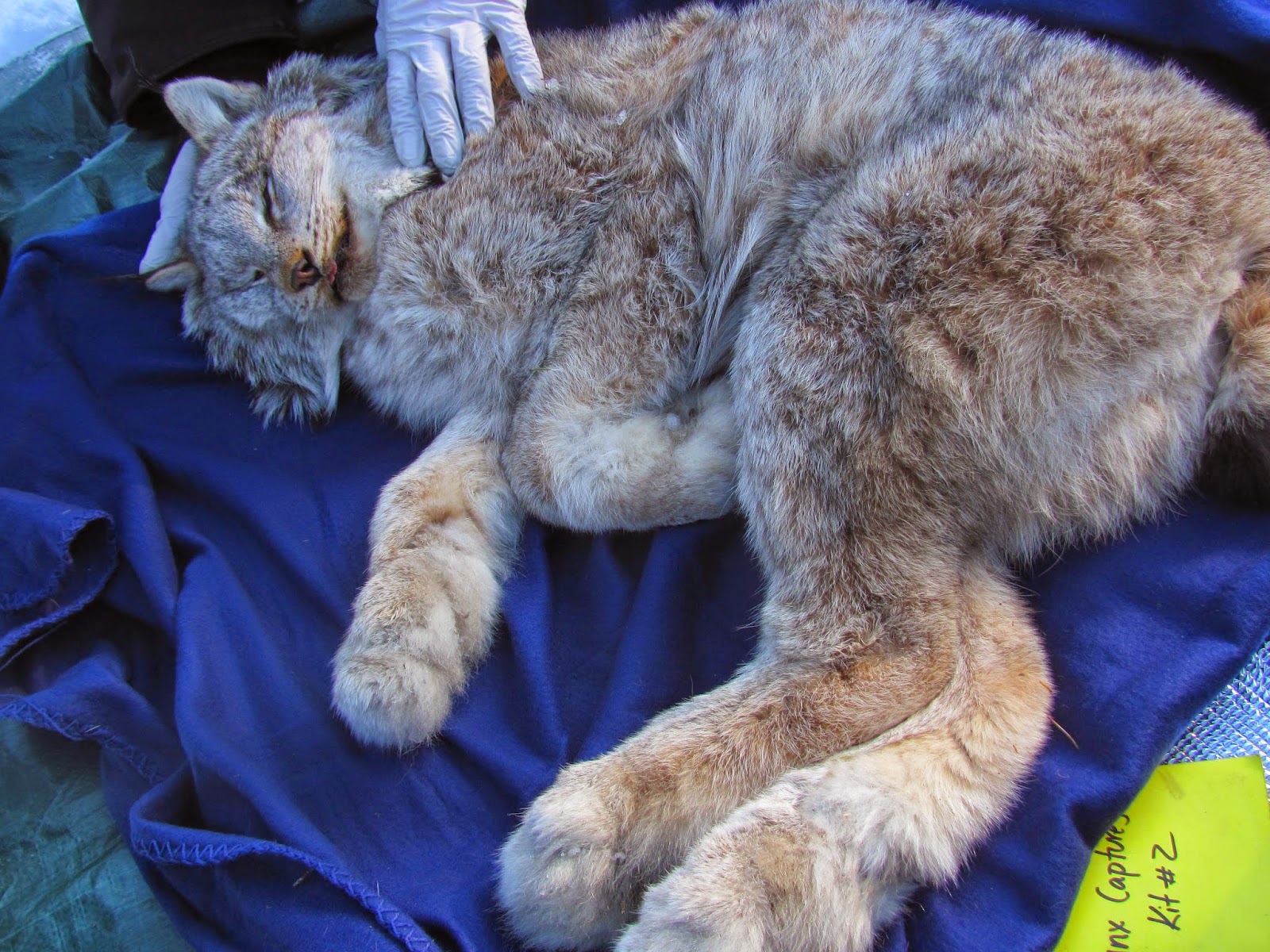We continue to check our trapline daily and diligently make adjustments in the hopes that we can collar a few more animals before the snow melts. The sun is more intense every day, and it stays light until about 8:30pm. Which means that our field days often go later into the evening. More time for exploring!
We had our first female lynx capture. They are noticeably smaller than the males, with a much faster heart rate. They metabolize the drug faster too and so recover much more quickly.
She was starting to shiver and so we had to wrap her in even more coats and we also added about half a dozen hand warmers. She was back to normal in about 15 minutes, but we left her bundled up until she revived.
After about an hour she revived and started to struggle up the hill.
It's hard to watch them come out of the drug because their limbs don't work as quickly as their desire to escape.
We left her at about 7pm. She seemed to be doing as well as could be expected, and we needed to be getting home.
A few days later we climbed the hill that overshadows the lake where this female was caught. "Cat Mountain" had tons of cat and bunny tracks, and we found a hare kill site!
We had a great vantage point from the top. Wetlands forever.
We also spent that afternoon trying to get across the Black Hills by following burn scars and drainages, but the regrowth would get too thick by the time we got close to the hills.
The sunrises are much more beautiful than the sunsets out here.
We never did get all the way to the mountains. Maybe in the future.
The flights to and from the cabin have been fascinating. There is nothing quite like viewing the landscape from the air. It expands your perception of the ecosystem so much when you can view these massive patterns in vegetation and lakes and streams from a distance.





































